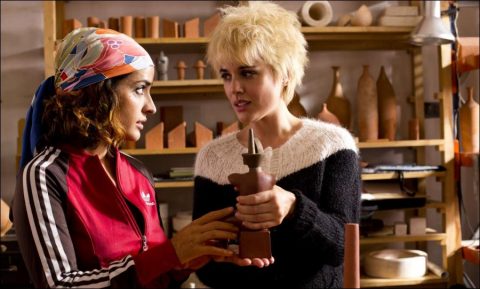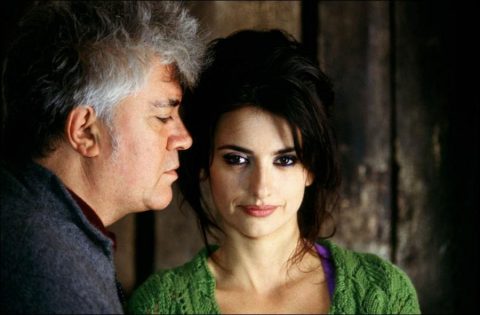“In my opinion, literary cinema is a cinema in which language has a basic position and provides the driving force for action.” – Pedro Almodovar
In the most basic perspective of Pedro Almodovar cinema lies the expression of all dimensions of human reality with joy and pain. His new film “Pain and Victory” shows us in a way how his gaze is based.
We cannot link this to the fact that it is a purely fictional film. It is a fact that a significant number of good filmmakers are successful in telling their own story. It should be said that this is not merely a self-control, but because the element that makes the filmmaker is a good storyteller beyond the knowledge of cinema.
I think it is neither sufficient nor descriptive to describe Almodovar cinema:
Melodramatic,
Pain,
Grotesque,
Sexuality,
Emotional,
Critical,
Pornographic,
Dramatic,
Passion,
Desire,
Love,
Destructiveness
Mourning,
Tragic

We can extend this list. For example, her previous film, iet Julieta ”(2016), or “The Skin I Live in” (2011) and “Broken Embraces” (2009), were the films that could extend this geography.
This time, the relationship between body and pleasure is brought together with the burnout syndrome on the axis of body and creativity, which shows us where he carries his expressionism in cinema.
“Pain and Victory” is also a film based on memory and remembering. Salvador Mallo, the hero of the film / story, senses the relevance of the problem with the body of a resentful creator and a kind of childhood trauma.
Again, “woman” takes on the role of healing as the head figure. Salvador’s close / distant stance with his mother, the joyful / sad / astringent loneliness of his return to his childhood …
It is noteworthy that Almodovar cinema based its most important feature on the axis of an event with the idea of communication and breakage between people. Any kind of violence / conflict that emerges from there leads to Almodovar’s anger and even resentment after one step of my misunderstanding. “Pain and Victory”, which can be read as a “comeback”/ ”interrogation”/ “confrontation” film, is a blessing of success; is the story of seeing / showing the background of a director’s background.
The delusion in the loneliness of the Creator, the resentment of love, the showdown with the past…
So much so that the childhood moved to an irreversible memory, remembered trauma, aura of inner grief will meet with the aura of his cinema after a while will be the starting point.

The labyrinths of pain experienced by the exploration of the body of the creator’s inner loneliness and sheep loneliness are not only physical but also spiritual.
It is noteworthy that he gives this through both the childhood and the mother figure, in fact showing the dilemma.
Salvador’s main protagonist, hayat life does not make sense if I do not make a film, ”is also the reason for his existence. The pain of his time will only heal his soul with the film. It does not see it as a “victory… That’s why he’s alive, even breathing, and his body’s milking!
Almodovar also tells us the story of the pain in a creator who chooses to shut up instead of repeating himself, and what kind of dilemmas this cycle creates.
From time to time he is a narrator who asks his audience the question im where am I here?.. And as a good narrator, he whispers to us: This is our story, but where is your story, if you live without seeing / understanding / telling this, pity you too?
Undoubtedly, Almodovar is a director who raises questions. It also shows the vortex that every narrator sets out to become his / her own in this recall / memory journey.
The described childhood is not a mere recall bookmark. It lies in the light of the first traces of a filmmaker’s existence in those who lived there, even the deprivations.
So much so that one of the most prominent in the cinema of Almodovar or here: After watching the film and a new desire to watch you relaps. In order to be ready for the second reading, it is inevitable to put a short distance between them.
Hits: 78



